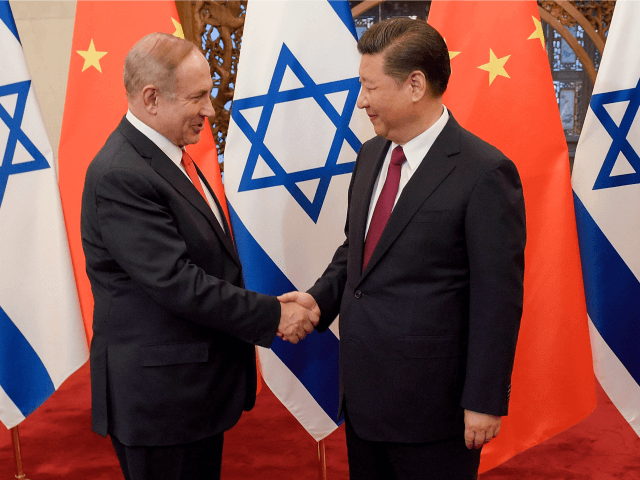TEL AVIV – A senior U.S. official said that in order to maintain good relations with the U.S., Israel must establish more robust oversight for Chinese investments in the country, the Jerusalem Post reported Wednesday.
His comments came ahead of a security cabinet meeting in which Prime Minister Benjamin Netanyahu is expected to finalize plans regarding foreign investment in Israel.
Israeli lawmakers estimate that Chinese corporations have invested in projects or acquired assets in Israel worth nearly $15 billion.
Israel’s Shin Bet security agency, the National Security Council (NSC) and U.S. administrations past and present have repeatedly expressed security concerns over Chinese investments, but government security cabinet ministers have so far failed to curb the trend.
Israel’s Foreign Ministry last month warned the security cabinet that failing to act would harm the U.S.-Israel alliance.
The U.S. “woke up late” to the threat posed by China’s extensive investments in Israel’s infrastructure and high tech industry, the report cited the unnamed official as saying.
“We saw a real pattern emerge and certainly, it is not surprising [that] the Chinese would target Israel with Israel’s very robust, emerging technology sector, which is something they’ve always lacked,” the official said.
The official added that the U.S. would offer Israel its “best practices and some models” in preventing the phenomenon from getting out of control.
“That doesn’t mean ‘no China,’ but it means that you’re watching very closely the nature of Chinese investment and making sure that we preserve Israel’s innovation and technological edge, which is what has been such an extraordinary driver of the Israeli economy,” he said.
“So, it’s balancing the need and desire [for] robust foreign investments, with maintaining the conditions that has made Israel such an attractive destination for foreign investments.”
Among the Chinese tender acquisitions in recent years are Tnuva, Israel’s largest dairy producer, the Carmel tunnels, the Ashdod and Haifa seaports, and Tel Aviv’s light rail.
The Haifa port acquisition is a particularly thorny issue for the U.S. since it has been used by the US Navy’s Sixth Fleet. According to the official, the U.S. is looking for ways to mitigate China’s ability to “glean from that activity” once it begins operating the port in 2021.
“It’s a work in progress. We woke up late to the problem. We didn’t take the opportunity to bid on the Haifa project when that was open and that was a mistake,” the official said. “And now we can continually work with our Israeli colleagues to mitigate any issues that may have slipped under the bridge so far and to prevent future ones.”
He said that any regulatory mechanism should monitor in particular technology and critical infrastructure investments. “You’ll certainly be looking at things like 5G, that we would in consultation going forward continually could review and redefine what counts as a sensitive technology, as it’s constantly changing.”
The official remained optimistic about Israel’s willingness to implement supervision, and credited the close relationship between the Netanyahu government and the Trump administration.
“We’ve been very encouraged by the responsiveness of the Israelis,” the official added. “It’s difficult, it’s a process. I’m not saying that this is an easy walk in the park. But I think that the Israelis understand the nature of the problem and the necessity of getting it resolved.”

COMMENTS
Please let us know if you're having issues with commenting.